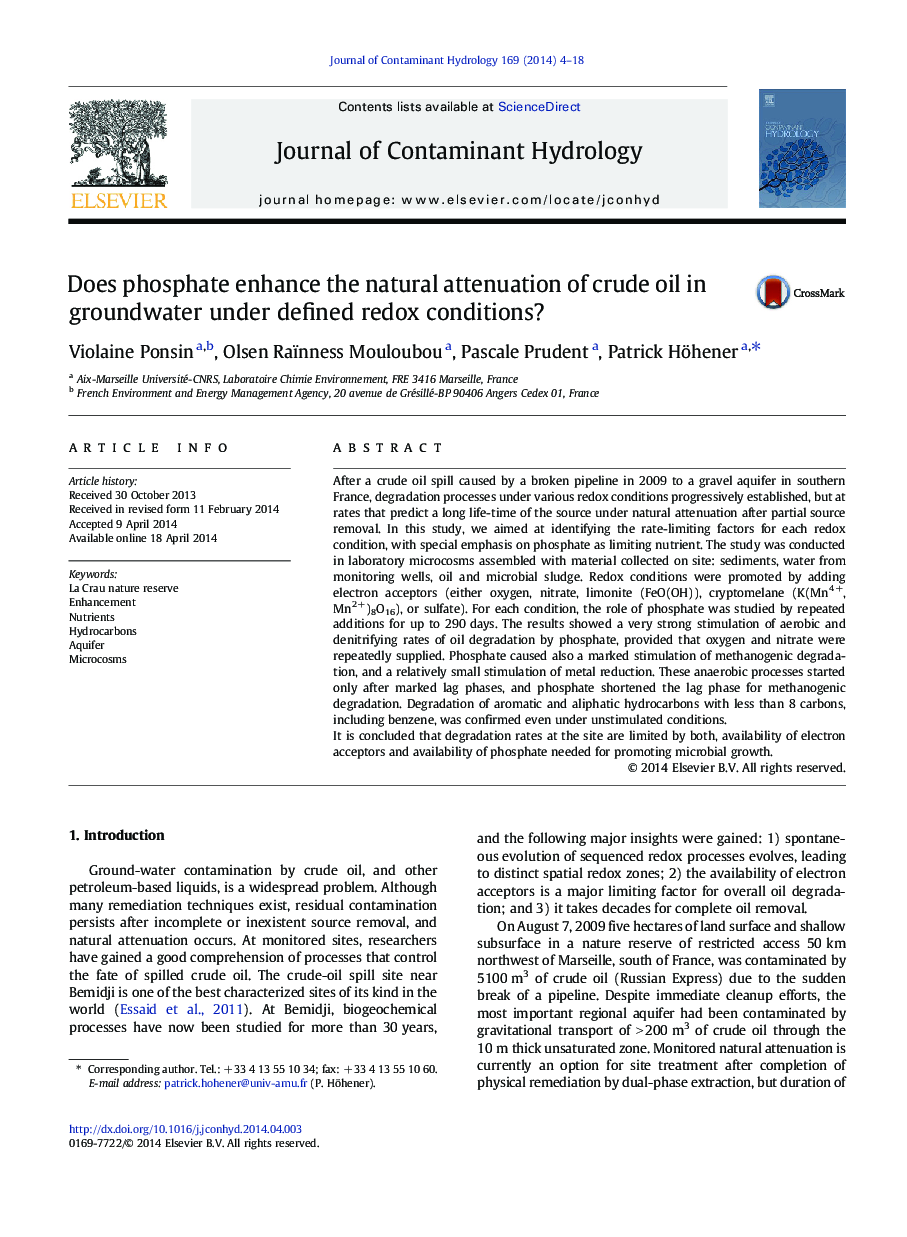| کد مقاله | کد نشریه | سال انتشار | مقاله انگلیسی | نسخه تمام متن |
|---|---|---|---|---|
| 6386489 | 1627039 | 2014 | 15 صفحه PDF | دانلود رایگان |
- Various redox conditions including methanogenesis were promoted & sustained in microcosms.
- Stimulating effect of phosphate on electron acceptors consumption was observed.
- Strongest stimulating effect of phosphate was observed in nitrate & oxygen-amended microcosms.
- Metal-reducing conditions were limited by availability of electron acceptors.
- P decreased lag phase of methanogenesis and stimulated methane production.
After a crude oil spill caused by a broken pipeline in 2009 to a gravel aquifer in southern France, degradation processes under various redox conditions progressively established, but at rates that predict a long life-time of the source under natural attenuation after partial source removal. In this study, we aimed at identifying the rate-limiting factors for each redox condition, with special emphasis on phosphate as limiting nutrient. The study was conducted in laboratory microcosms assembled with material collected on site: sediments, water from monitoring wells, oil and microbial sludge. Redox conditions were promoted by adding electron acceptors (either oxygen, nitrate, limonite (FeO(OH)), cryptomelane (K(Mn4Â +,Mn2Â +)8O16), or sulfate). For each condition, the role of phosphate was studied by repeated additions for up to 290Â days. The results showed a very strong stimulation of aerobic and denitrifying rates of oil degradation by phosphate, provided that oxygen and nitrate were repeatedly supplied. Phosphate caused also a marked stimulation of methanogenic degradation, and a relatively small stimulation of metal reduction. These anaerobic processes started only after marked lag phases, and phosphate shortened the lag phase for methanogenic degradation. Degradation of aromatic and aliphatic hydrocarbons with less than 8 carbons, including benzene, was confirmed even under unstimulated conditions.It is concluded that degradation rates at the site are limited by both, availability of electron acceptors and availability of phosphate needed for promoting microbial growth.
Journal: Journal of Contaminant Hydrology - Volume 169, 15 November 2014, Pages 4-18
